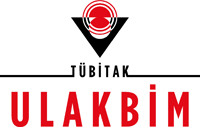COOPERATİVE MODEL OF ENERGY PRODUCİNG AND CONSUMİNG İN TERMS OF SOCİAL ECONOMİC NETWORK
Keywords:
Social Economic Network, Energy Production, cooperative, rural development, EnergyAbstract
As is known, the wold population, which was 2,5 billion in 1950 is expected to be 7,5 billion in 2020. So how do you meet the growing population needs? Scientist have to search for answers to this question. In this context, the role of plants is quite large. The plants meet the food needs of people with fruits and vegatables, as well as clothing needs with their yarn and other qualities. At the same time, plants can meet people’s oil and fuel needs. The energy that plants have from the sun can be converted into biofuel. Biodiesel can be obtainded from plants such as canola and corn, which is equivalent to diesel derived from petroleum as well as renewable plastics and waste is used as a valuable fertilizer.
Turkey has to follow the developing countries of the world with renewable energies. The raw material of the biofuel, which is important among the renewable anergies, are the agricultural products produced by our farmers in the field.
Today, among these products, biogas and energy farming is important in the EU and many ather developed countries. Although Turkey is a rich country in terms of energy farming potential, this area is far behind the countries of thestructure of small farming enterprises which are obliged for cooperate the development of this sector which will be very interested our cooperatives is very necessary and important and social economic network.
The purpose of this report is to examine the cooperative model of energy production and consumption in rural areas in terms ofsocial economic network in the light of the research findings obtained.
Turkey is one of the countries most afffected by the energy crisis in the word. Although studiesin the field of energy agriculture in Turkey started in 1963 in Soil Water and in 1968n in the Faculty of Agriculture of Ankara University, we are far behind developing countries today. In the US, corn, and soya bean jelly come to the fore as energy forming products, while sugar cane in Brazil and flaxseed and canola in the European Union Countries play an important role. In Turkey for example; organicmatter matter such as forests, paper, vegatables, fruits, grain, oil, food and sugar industry wastes are important products in terms of energy potential such as aspirin, canola, corn, sunflower, cereals and sugar cane.
On the basis of the countries ‘Bioethanol production USA is in the 1st place with 50 billion liters and it is followed by Brazil with 27 billion liters and EU countries and China with 4 billion liters. Energy plants are produced in %2 of the world’s agricultural areas.When the EU and other developed countries producing energy in rural areas areexamined, agricultural enterprises producing energy from plants in the countryside are seen as large enterprises. In Turkey, agricultural enterprises are composed of small enterprises. In this context, the average size of agricultural enterprises in the EU countries is 17,4 hectares and the US 180 hectares. In Turkey, this value is 5,9 hectores. The number of enterprises that larger than 50 hectares in the EU is 22. Researches show that approximately 60% of this Turkish agricultural enterprises are small enterprises, social networking is not enough for organizng, the proportion of those who are interested in organizing in some regions is as low as 14.3 and organizing efficiency is as low as 6.1 %.
It is important and necessary to develop a cooperative model that produces and consumes energy in rural areas in terms of the development of rural development and social economic network as well as the structure of small agricultural enterprises which are obliged to cooperate.
With this model, the cooperative operates as a bridge between the energy generatingplant and the energy consuming farmers who produce the raw material the cooperatives will direct the organic wastes (plants and animals) that they will buy from the producers to the biogas plant. In addition, he will buy energy crops such as canola, sunflower and corn for biogas plant, which will be produced by farmers in an agricultural extension process. The cooperative will also provide transportation (sales) of gas, heat, electricity, fuel and fermented fertilizer produced in the biogas plant.
Turkey has an important place in terms of energy farming potential. The small size of agricultural business permits to take advantage of this energy potential constitutes a major obstacle. It is important and necessary to develop e cooperative model that produces and consumes energy in rural areas in terms of both rural development and social economic networking.








